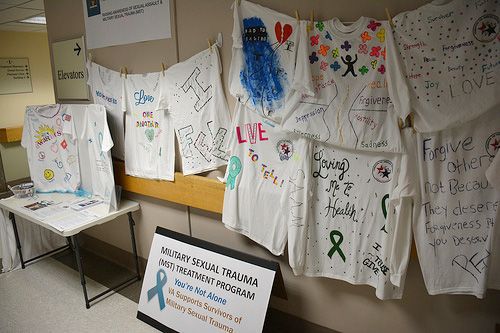VA offers support for victim of military sexual abuse
Published 12:00 am Wednesday, April 16, 2014
SALISBURY – April is Sexual Assault Awareness Month (SAAM), and the staff at the W.G. (Bill) Hefner VA Medical Center, and Veterans in the Military Sexual Trauma (MST) program, are recognizing this observance through a Clothesline Project display in the Lobby of Building 2 through April 18.
For its SAAM activities this year, VA has adopted a national theme of “You’re Not Alone: VA Supports Survivors of Military Sexual Trauma.” Military sexual trauma is the term used by the VA to refer to sexual assault or repeated, threatening sexual harassment experienced during active duty or active duty for training.
VA’s national SAAM theme for this year is designed to address the secrecy that can sometimes surround MST, to help veterans who may feel like they’re the “only one” who experienced MST or that they’re all alone. In fact, in 2012-2013, one in four female veterans and one in 100 male veterans who were seen for VA health care had reported a history of MST when screened by their VA provider.
The Clothesline Project at the Salisbury VAMC is a visual display designed to raise awareness about the impact of military sexual trauma, sexual assault and sexual abuse. Survivors decorated T-shirts in a way that reflects their experience of sexual trauma or recovery.
The shirts are hung side-by-side to “break the silence” and to raise awareness of the impact of sexual trauma. Both male and female veterans in the MST program voluntarily decorated shirts for the Salisbury VAMC Clothesline Project.
While this month is designated as an opportunity to educate people about sexual assault, the staff at the Salisbury VA Medical Center works with victims of military sexual trauma every day to help them learn to recover from past abuse.
Dr. Amy Smith, military sexual trauma program coordinator, said it’s important that veterans don’t let common misconceptions keep them from getting help for MST.
“Everybody tends to think MST is a female-related issue, but that’s not true, it’s a myth that society perpetuates. Others may have this mindset of ‘I can deal with this,’ or ‘I can handle this,’ so they don’t seek out treatment immediately,” she explained. “Some think they can deal with it through denial since they have learned independence and strength in the military culture.”
Symptoms that MST survivors experience include strong emotional reactions, feelings of emotional numbness, trouble sleeping, difficulties with attention, concentration and memory, problems with alcohol or other drugs, difficulty with things that remind them of their experiences of sexual trauma, difficulties in relationships and physical health problems.
Smith stressed that counseling and treatment are available at the Salisbury VAMC for those who have symptoms of MST.
“People need to be aware that there’s help for MST and that they are not alone in experiencing symptoms that are related to military sexual trauma. There’s treatment available and recovery is possible,” she said.
Veterans who experienced MST can receive free treatment for mental and physical conditions related to their experiences of MST. This includes outpatient, inpatient, residential and pharmaceutical care, and the services are available at every VA health care facility. In addition, every VA Medical Center has a designated MST cCoordinator who serves as a contact person for MST-related issues at the facility and can help veterans access MST-related services and programs.
Veterans may be able to receive free MST-related care even if they are not eligible for other VA services. No documentation is required, and veterans do not need to be service connected or be receiving VA disability compensation.
For more information about the military sexual trauma program or to make an appointment, call Dr. Amy Smith at 704-638-9000, ext. 4230. More information about the Salisbury VA Medical Center and its programs are available at http://www.salisbury.va.gov/.




